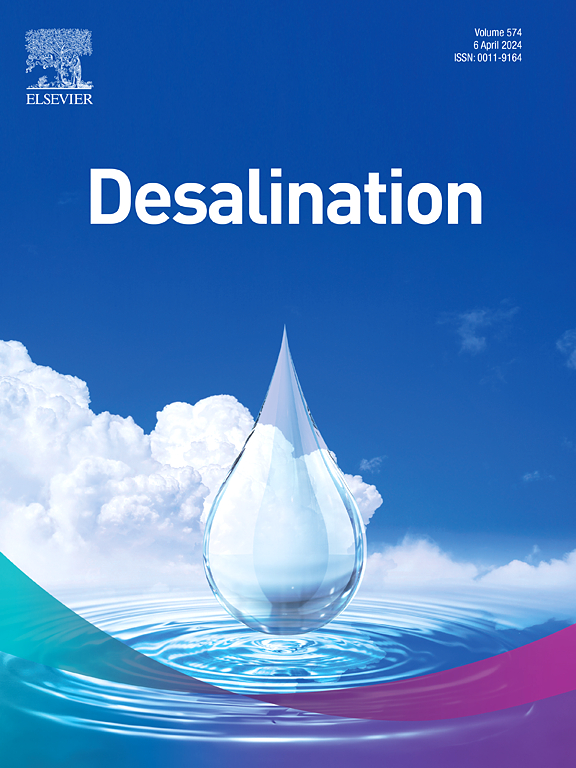Comparative assessment of conventional and emerging desalination technologies: a holistic review for sustainable water solutions
IF 8.3
1区 工程技术
Q1 ENGINEERING, CHEMICAL
引用次数: 0
Abstract
Desalination is playing an increasingly vital role in addressing global water scarcity, yet current reviews often isolate established and emerging technologies, limiting cross-comparative insights. This study presents a unified, systematic assessment of both conventional and post-2000 emerging desalination methods, offering a holistic decision-support framework. Through heatmaps and multi-criteria benchmarking, we evaluate energy demand, cost, environmental impact, water quality, and technological maturity across a wide spectrum of technologies. By integrating mechanistic insights with side-by-side performance summaries, the review highlights trade-offs and synergies, revealing that no single solution outperforms in all contexts. We identify critical research frontiers, including graphene-based membranes, microbial desalination, and machine learning-driven optimization that hold transformative potential. Our framework empowers stakeholders to select, combine, and advance desalination technologies aligned with regional conditions and sustainability goals, while advancing the field beyond siloed evaluations toward integrated, future-ready strategies.
传统和新兴海水淡化技术的比较评估:可持续水解决方案的全面审查
海水淡化在解决全球水资源短缺问题方面发挥着越来越重要的作用,但目前的评论往往将现有技术和新兴技术隔离开来,限制了交叉比较的见解。本研究对传统和2000年后新兴的海水淡化方法进行了统一、系统的评估,提供了一个整体的决策支持框架。通过热图和多标准基准,我们评估能源需求、成本、环境影响、水质和各种技术的技术成熟度。通过将机制见解与并行性能总结相结合,该综述强调了权衡和协同作用,揭示了没有一个解决方案在所有情况下都表现出色。我们确定了关键的研究前沿,包括石墨烯基膜、微生物脱盐和具有变革潜力的机器学习驱动优化。我们的框架使利益相关者能够根据地区条件和可持续发展目标选择、组合和推进海水淡化技术,同时推动该领域从孤立的评估转向一体化的、面向未来的战略。
本文章由计算机程序翻译,如有差异,请以英文原文为准。
求助全文
约1分钟内获得全文
求助全文
来源期刊

Desalination
工程技术-工程:化工
CiteScore
14.60
自引率
20.20%
发文量
619
审稿时长
41 days
期刊介绍:
Desalination is a scholarly journal that focuses on the field of desalination materials, processes, and associated technologies. It encompasses a wide range of disciplines and aims to publish exceptional papers in this area.
The journal invites submissions that explicitly revolve around water desalting and its applications to various sources such as seawater, groundwater, and wastewater. It particularly encourages research on diverse desalination methods including thermal, membrane, sorption, and hybrid processes.
By providing a platform for innovative studies, Desalination aims to advance the understanding and development of desalination technologies, promoting sustainable solutions for water scarcity challenges.
 求助内容:
求助内容: 应助结果提醒方式:
应助结果提醒方式:


